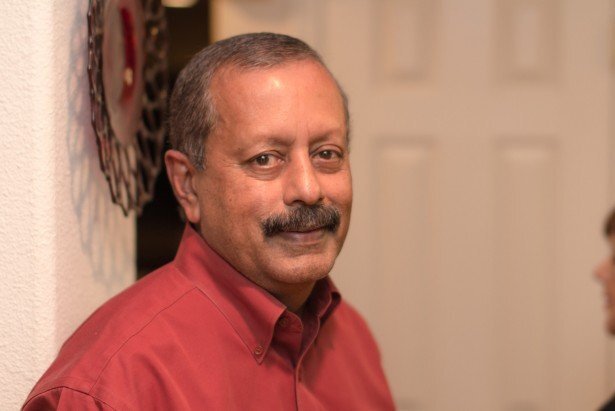(Dr. Jacob is
the Medical Director of Alameda Health System in California. He is also a noted community
activist)
Though
an American now, I hail from the southern state of Kerala, in India; one with strong roots in
commitment to its people. Historically, Kerala has been a state with much to
boast of, achieving milestones in education, gender equality, and, perhaps most
evident in our current times, healthcare. People have spoken of the “Kerala
Model” in health along with other countries like Cuba
and Sri Lanka.
The state had the first public health clinic in India specifically focused on
smallpox eradication. It has consistently improved or maintained high health
indices in life indicators such as the infant mortality rate and life
expectancy at birth. Kerala is one of the only states in India to have higher ratio of women to men,
significant due to the cultural pressures on gender preference for a male child
commonly seen across Asia. Even during the
pandemics of 1900’s, the state of Travancore and Cochin, having great visionaries in health,
was able to take measures to dampen the impact of the tragedies occurring
worldwide. These were all the glories of the past. Now we are in a different
era; the post-Covid era.
Covid-19
has swept the world and has proved to be a litmus test to the leadership of
many countries. My observation is where ever the leadership was weak the virus
has come in strong. This is a fact that many may not want to accept, but we
have enough evidence to prove the point. The USA
and Brazil,
two countries which are most hardly hit have leaders who refused to believe in
the forecasts for the virus’ spread provided to them by their own public health
experts. This is most definitely a war; a war between a pathogen and science.
In January, when the epidemic was just taking hold in many countries, I was
invited to Kerala for a panel discussion on Covid. When I stated that it is a
war we are waging, a senior faculty of a local medical college who was also a
speaker, questioned my use of the word “war” in this context. Even Tolstoy
would agree that in this case, it is a war and there is no peace. It may not be
fair to compare a state in India
to a country the size of the USA.
Kerala had much to brag about the numbers for Covid until about a month ago
when numbers started rising. In a pandemic there is no time to compare with
others. The focus needs to be on the mission as we have no time to be
distracted by laurels. The game is not yet over. Distractions do not help in
this fight.
During
a pandemic, it is vital for us to stay united in our message and provide the
respect to and the space for our most experienced public health officials to
make their recommendations based on science.
This is not the time to have division between the governance and local
health care bodies. Viruses will always take advantage of the gaps in the
system. This has happened both in Kerala and the United States, but the messages
from both have been different. In the USA, leadership has turned away
from on its former oracle of public health, The Centers for Disease Control
(CDC). The decision makers’ agenda did not align with the CDC’s science and so
it has been thwarted in its work. Though K.K. Shailaja, Health Minister of
Kerala, was internationally recognized for her effective leadership in Kerala’s
Covid-19 response, even there science (the Indian Medical Association) and
politics’ message has diverged. When politics is placed above science, the
leadership is effectively turning their back on the hard work done by the
healthcare workers and scientists. Egos must be put aside, and respect must be
shown by leadership to the “boots on the ground” actively fighting in the
trenches. These are the people that are most proximal to the virus, and thus
know its evolutionary changes best.
Today
as the number of new cases rises in both Kerala and the United States,
this will be the real test of their mettle. Kerala has been able to keep the
case fatality very low so far (0.39%) compared to the United States
(4%). Maybe it is because the state has started seeing the second surge only
now. The case fatality will depend upon how prepared we are as hospital
admissions surge. Are we prepared? Is the virulence of the virus different in
that part of the world? Has BCG vaccinations that are given in India helped
with the virulence?
At
this current stage all we can do is to identify cases early and quarantine them
to avoid a massive spread. This needs testing. Testing is a critical tool that
helps us diagnose and treat those who become infected by COVID-19. Testing also
helps us understand how COVID-19 moves through our communities so we can
identify areas where transmission is occurring. The testing rates in the United States
are still relatively low compared to many other countries. India, which is
in the forefront of diagnostics should be having many cost-effective antigen
tests approved by ICMR yet still has a very low testing rate.
The
situation is also complicated by “super spreaders”, those that have a much
higher rate of virus transmission compared to the general population. At this
time, we need superheroes to help contain this outbreak. At the end of all this
we will have to see if the honorable minister Shailaja is truly a superhero.
It
is like watching the previews of a movie, but still having to wait for the
whole movie to reveal its ending. I hope the wait is not too long… and by then
the roots don’t buckle.






